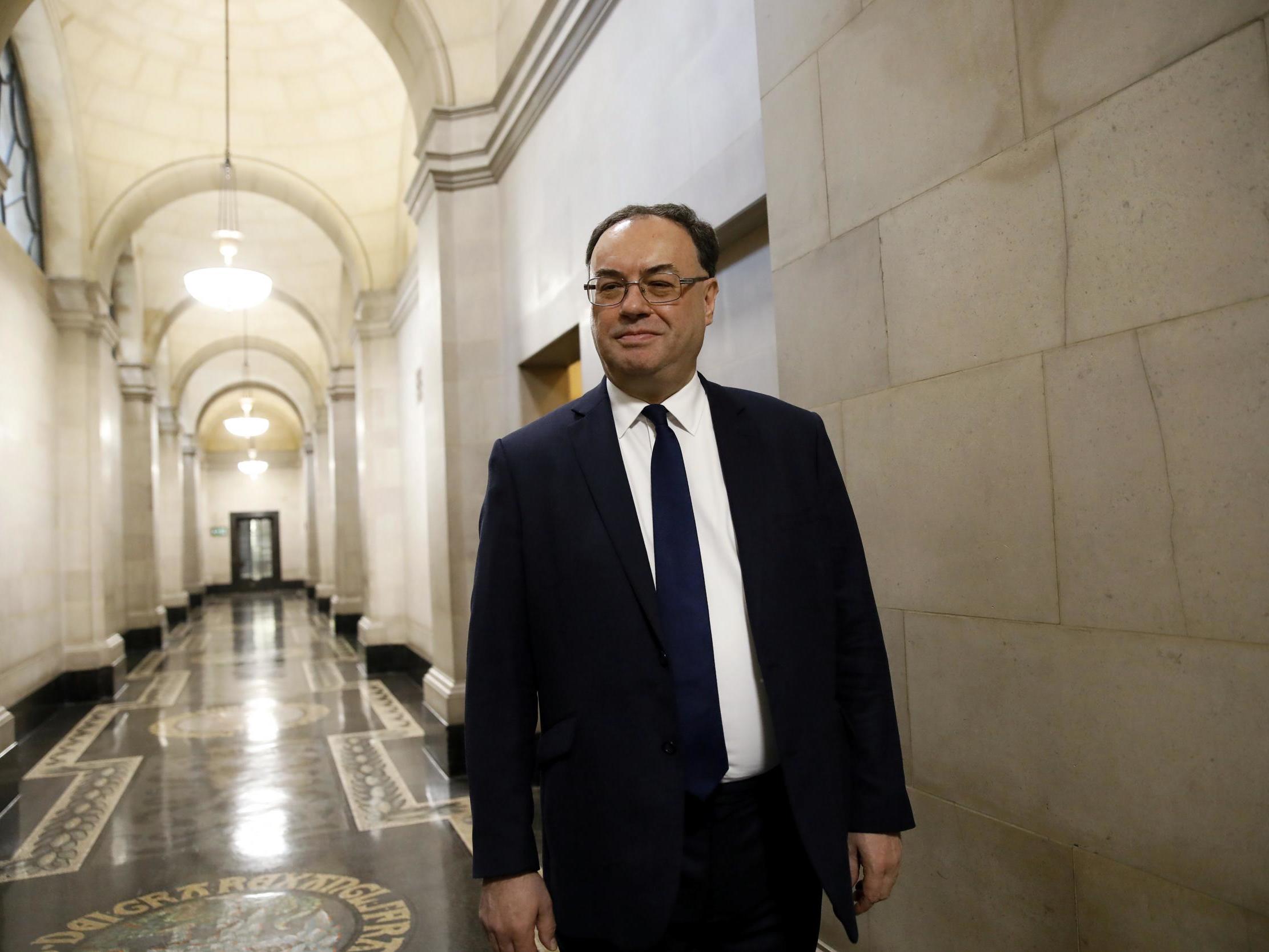The Independent's journalism is supported by our readers. When you purchase through links on our site, we may earn commission.
Bank of England saved Britain from effective insolvency, governor says
‘We basically had a pretty near meltdown of some of the core financial markets,’ says Andrew Bailey

Your support helps us to tell the story
From reproductive rights to climate change to Big Tech, The Independent is on the ground when the story is developing. Whether it's investigating the financials of Elon Musk's pro-Trump PAC or producing our latest documentary, 'The A Word', which shines a light on the American women fighting for reproductive rights, we know how important it is to parse out the facts from the messaging.
At such a critical moment in US history, we need reporters on the ground. Your donation allows us to keep sending journalists to speak to both sides of the story.
The Independent is trusted by Americans across the entire political spectrum. And unlike many other quality news outlets, we choose not to lock Americans out of our reporting and analysis with paywalls. We believe quality journalism should be available to everyone, paid for by those who can afford it.
Your support makes all the difference.The Bank of England saved the UK from effective insolvency in the early stages of the coronavirus pandemic, its governor has said.
Andrew Bailey told Sky News that the government would have struggled to fund itself had the Bank not intervened during the market “meltdown”.
“We basically had a pretty near meltdown of some of the core financial markets,” Mr Bailey said.
“We had a lot of volatility in core markets: the core exchange rate, core government bond markets.
“We were seeing things that were pretty unprecedented, certainly in recent times. And we were facing serious disorder.”
He said the Bank intervened with £200bn of quantitative easing to prop up the struggling economy.
Asked what would have happened if the Bank had not intervened, he replied: “I think the prospects would have been very bad. It would have been very serious.
“I think we would have a situation where in the worst element, the government would have struggled to fund itself in the short run.”
Mr Bailey also warned that many companies will not survive the coronavirus recession.
“There will be some activities which people did before Covid which they will just not go back to. It’s not going to be the same for some period of time,” he said.
“So I think there’ll be some activities and companies who say they had a perfectly viable business model before and weren’t over-indebted, but sadly, habits have changed.
“There will be companies who won’t survive – that’s unfortunately the case.”
It comes as the governor signalled a shift in policy which could see the Bank selling off bonds before it starts raising interest rates again.
Mr Bailey said the Bank might be restrained in what it could do in the future due to the amount of quantitative easing on its books.
Last week, the Bank announced it would increase its stimulus package to £745bn.
“The current scale of central bank reserves mustn’t become a permanent feature,” Mr Bailey wrote in an option piece for Bloomberg.
“As economies recover, it’s likely that some of the exceptional monetary stimulus will need to be withdrawn, including by reducing reserves.”
He added: “When the time comes to withdraw monetary stimulus, in my opinion it may be better to consider adjusting the level of reserves first without waiting to raise interest rates on a sustained basis.”
The Bank’s balance sheet was already high before the coronavirus pandemic struck earlier this year, forcing it to step in with more help for the flailing economy.
Since Mr Bailey took over as governor in March, the Bank’s baseline interest rate has been slashed to 0.1 per cent, and the Bank has promised to buy billions of pounds worth of bonds and lend billions to large companies.
“Elevated balance sheets could limit the room for manoeuvre in future emergencies,” Mr Bailey said.
The governor said Covid-19 had posed the most serious threat to the stability of the financial system since the financial crisis more than a decade ago.
Mr Bailey wrote: “The response has included a major programme of asset purchases and lending by central banks, with a corresponding growth of balance sheets.
“This has been the right thing to do to reduce borrowing costs, boost cash flows and more broadly support economies, and it has shown how essential it is to have truly independent central bankers.
“But the financial system mustn’t become reliant on these extraordinary levels of reserves.”
Join our commenting forum
Join thought-provoking conversations, follow other Independent readers and see their replies
Comments